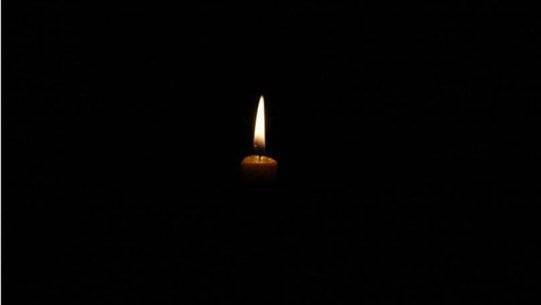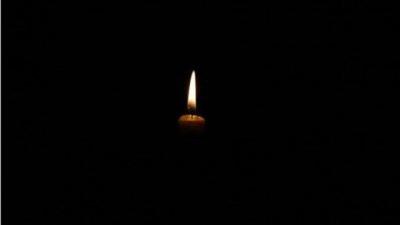Multiple problems stem from one cause: a political authority that prioritizes its narrow individual interests over public welfare. Officials who have diluted the maritime border demarcation file for political gains and to save face in "energy" have not received the promised Jordanian electricity and Egyptian gas. Consequently, they faced a situation akin to "those who attended the feast and left without any gratification."
At the peak of activating Decree 6433, which grants Lebanon the right to negotiate maritime borders up to Line 29 in the first quarter of 2021, "cold water was poured over the initiative." The decree, signed on April 12 of that year by caretaker Prime Minister Hassan Diab, which had also been signed by the Ministers of Defense and Public Works, only lacked the signature of the President, which did not occur. A few weeks later, Lebanon received an offer from the World Bank to finance the process of importing electricity from Jordan and gas from Egypt to increase supply hours. Lebanon promised to overcome all obstacles facing this project, including the "Caesar Act" sanctions imposed on Syria.
Simultaneously, the American mediator in the maritime border negotiations between Lebanon and Israel, Amos Hochstein, presented a compromise offer that later became known as a zigzag line starting from Line 23, granting Lebanon a significant portion of the Qana field, but costing Lebanon the area between Lines 23 and 29, estimated at 1430 km².
**The Fall of the Offer Basket**
The return of tension to the maritime border demarcation file, with the arrival of the ENERGEAN POWER ship at the Karish field, made it nearly impossible to sit back down at the negotiation table based on Hochstein's previous proposal. "This will have assured repercussions on negotiations aimed at overcoming the obstacles preventing the import of electricity from Jordan and gas from Egypt," according to energy expert Fadi Jawad, who noted that "the offer presented to Lebanon to avoid 'drowning' in Iranian diesel has not materialized after 10 months and is likely not to do so anytime soon, despite all the preparations during the past period."
In Jawad's view, "the file is not solely related to the border demarcation issue but pertains to a complete package concerning the organization of the internal Lebanese situation and implementing fundamental reforms, which has been frozen, with no decision made so far to revive it."
**Neglecting Reforms is the Cause**
Regardless of heating or cooling the energy import file from Arab countries, alongside the renewed pressure in the maritime demarcation file, it is evident even to the most distant observers that Lebanon has not adhered to implementing the required reforms in the energy sector. Additionally, significant opposition from a large portion of the U.S. Congress exists regarding legally opening a window to finance the Assad regime from this deal, as Syria would benefit from about 8% of the imported energy. Furthermore, financing is primarily stalled due to the World Bank's and, by extension, the U.S.'s perception of the corruption within the political class responsible for the file, focused merely on temporary patchwork solutions without pursuing a permanent resolution.
The simplest evidence of this is the disagreement over the construction deals instead of working to reduce technical and non-technical wastes, which are expected to exceed 50%. With such a waste level, if Syria receives 8%, Lebanon would not benefit from more than 40% of the total energy imported from Jordan, amounting to 200 megawatts at a cost of $220 million for just one year.
Moreover, linking the price of electricity from Jordan to Brent crude prices would lead to a gradual increase in the price per kilowatt sold domestically amid the ongoing rising prices of oil globally. Thus, the price set at 12 cents based on Brent crude priced at $113 will rise further, diminishing the offer's significance, especially when compared to other solutions like transitioning to solar energy on an individual basis. Additionally, the promised U.S. approval and circumvention of the Caesar Law are not sufficient to import electricity from Jordan via Syria; the World Bank, financing the project, has other priorities apart from political stances, including the reform of the electricity sector in Lebanon, reforming Electricité du Liban, stopping deficits and waste, conducting financial audits, raising tariffs, reducing technical losses, addressing illegal connections, improving collections, appointing a regulatory body, and ensuring Lebanon's capacity to repay the loan—all of which have not been addressed so far.
**Maritime Borders Matter More**
On the other hand, Jawad believes that "the commercial valuation of the oil wealth in the area between Line 1 and Line 29, covering an area of 2290 km², does not compare to what Lebanon might receive from energy." It would not be in Lebanon's interest to concede an estimated wealth of 32 trillion cubic feet of gas for the sake of 200 megawatts of electricity from Jordan and 650 million cubic meters of Egyptian gas, received in exchange for a dollar-denominated debt. Should Lebanon need to choose between the two offers, Jawad suggests it is in its interest "to be firm in obtaining the largest possible share of the disputed maritime area." But can Lebanon turn back the clock on negotiations now that exploration in the "Karish" field has become a reality? What price might Lebanon pay due to the intensification of this file?
Based on confidential information, Jawad asserts two confirmed points: First, the President will not sign Decree 6433 until it is too late, at a stage where Israel's rights in the Karish field will be settled, with the drilling ship expected to begin operations in a few weeks. Second, the commencement of drilling in the Karish field will not lead to hostile or military actions, as some expect. The massive investments of billions of dollars from the Israeli side and the arrival of the drilling ship, costing around $800 million, were not made randomly but rather based on guarantees that no confrontations would erupt. Thus, the Israeli side will not engage in a military adventure that would jeopardize their potential to secure vast wealth.
**Settlement Line**
According to Jawad, the resolution of this dispute will rely on one of two options: either reaching a new settlement line between Lines 23 and 29 or recognizing the disputed area as a common zone under the guardianship of an international American firm operating at 100%, managing it in exchange for agreed-upon returns to both parties.
With the electricity import file from Jordan and the Egyptian gas stalled, the current production of Jordanian oil, which does not exceed 300 megawatts, will cease entirely after three months. After this, Lebanon will face state electricity outages 24/7, leaving most citizens unable to rely on private generators, where some price kilowatts at more than 14,000 Lebanese pounds.




